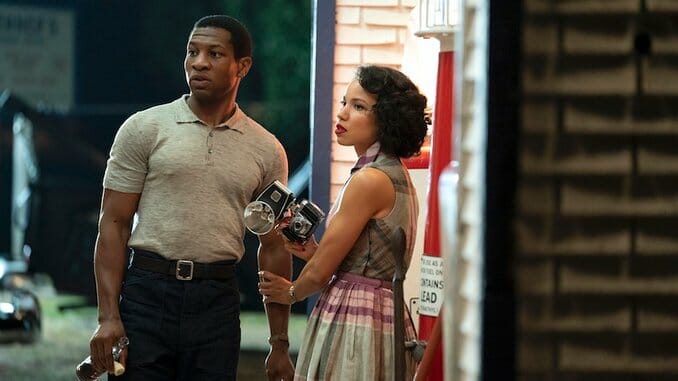Lovecraft Country’s Pulpy Call Is One Even Cthulhu Couldn’t Resist
Photo Courtesy of HBO
Lovecraft Country, an adaptation of Matt Ruff’s book of the same name, belongs more in a series of Weird Tales issues than in the current understanding of H.P. Lovecraft’s tentacle-ridden boogiemen, non-Euclidean geometry, and otherwise unknowable Old Ones. It’s a true pulp story, collected by showrunner Misha Green (who also had writing or story credits on the five episodes I got to see) straight from the mill and bound with an exciting cast and setting to enrich its adventure. Savvy and sensational, you’ve never seen Lovecraft like this.
Ranging from Chicago’s South Side (the show was partially shot in Chicago’s Pilsen neighborhood) to the eerie East Coast where Lovecraft’s tales haunted their hapless sailors and professors, Lovecraft Country tracks the cruel magicks of legacy while pointing out at every turn that its genre’s legacy is steeped in racism. Just because Lovecraft was a racist dickhead on a cosmic scale doesn’t mean Atticus Freeman (Jonathan Majors) doesn’t love his brand of fiction. Tic and his Uncle George (Courtney B. Vance) kick off the series on a Jim Crow-defying quest to find Atticus’ missing father (Michael K. Williams)—who’s off in search of their family’s secretive and spooky “birthright”—accompanied by Tic’s childhood friend Letitia (Jurnee Smollet).
That Chosen One formula with familiar notes—a call from the incredible to someone lodged in the mundane—is undermined from the opening scene. A bold sci-fi wartime nightmare demystifies cartoonish takes on violence by colorizing its black-and-white palette, while ironic narration from Alfred E. Green’s The Jackie Robinson Story introduces “an American boy and a dream that is truly American.” It’s effectively an Amazing Stories cover come to life, with the aliens, scantily-clad women, and outrageousness turned up to HBO levels. The monsters make Stranger Things look like a dollar-store lunchbox; the dramatic use of period setting should make Green Book’s Oscar ashamed to show its face.
-

-

-

-

-

-

-

-

-

-

-

-

-

-

-

-

-

-

-

-

-

-

-

-

-

-

-

-

-

-

-

-

-

-

-

-

-

-

-

-








































